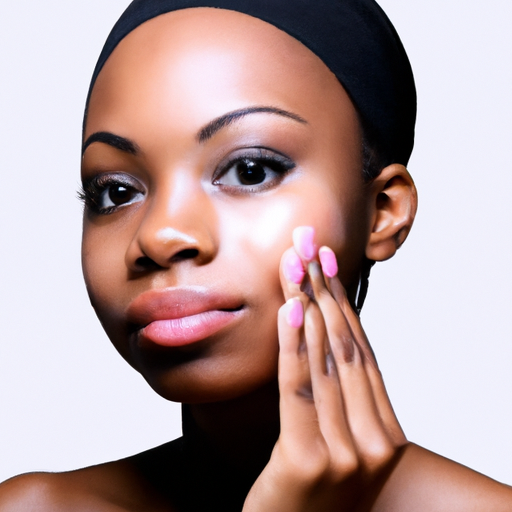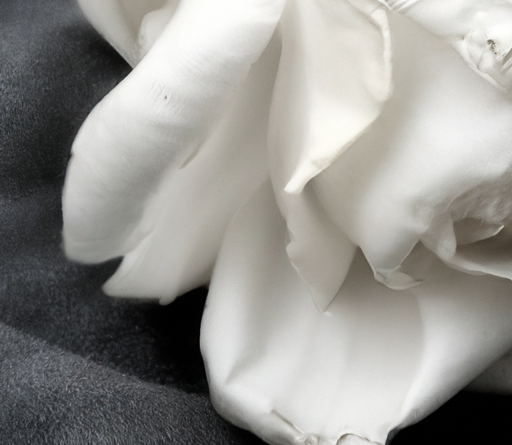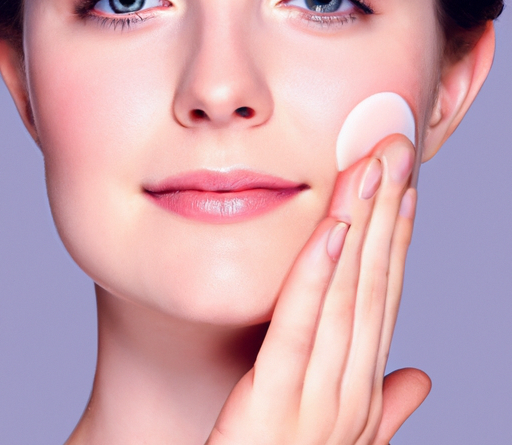
So, you’re on a quest for that flawless, silky smooth face, specifically tailored for your beautiful black skin. Look no further, because we’ve got just the guide for you. In the following article, we will explore some tried-and-true methods to help you achieve that desired smoothness you’ve always dreamed of.
Trust us, with the right techniques and a little bit of dedication, you’ll be turning heads and radiating confidence in no time.
First, we’ll delve into the importance of a consistent skincare routine. From cleansing to exfoliating, dark spots to moisturizing, we’ll cover it all. We’ll also address specific concerns such as hyperpigmentation and ingrown hairs, sharing valuable tips and tricks to combat these issues.
Additionally, we’ll shed some light on the power of natural remedies and the benefits of incorporating them into your everyday skincare routine. By the end of this article, you’ll have all the tools you need to embark on your journey to a smoother, more luminous complexion. So, let’s get started.
Daily Skincare Routine
Taking care of your skin should be a part of your daily routine, regardless of your skin type or color. A daily skincare routine helps to maintain healthy skin and address any specific concerns you may have. The three essential steps that you should incorporate into your daily routine are cleansing, exfoliating, and moisturizing.
Cleanse
Cleansing is the first step in any skincare routine as it helps to remove dirt, oil, and impurities from the skin. For black skin, it is essential to choose a cleanser that is gentle and does not strip the natural oils from your skin. Look for cleansers that contain ingredients like glycerin or hyaluronic acid, which help to hydrate and moisturize the skin as you cleanse.
When cleansing your face, make sure to use warm water and gently massage the cleanser onto your skin in circular motions. Rinse thoroughly with lukewarm water and pat your skin dry with a soft towel. Avoid rubbing your face vigorously as this can cause irritation and inflammation.
Exfoliate
Exfoliating is an important step in removing dead skin cells and promoting cell turnover. For black skin, it is crucial to choose an exfoliator that is gentle yet effective. Look for exfoliators that contain ingredients like glycolic acid or fruit enzymes, which help to brighten the skin and fade hyperpigmentation.
You can exfoliate your skin 2-3 times a week, depending on your skin’s tolerance. Take a small amount of the exfoliator and gently massage it onto your damp skin in circular motions. Rinse thoroughly with lukewarm water and follow up with a moisturizer.
Moisturize
Moisturizing is the final step in your daily skincare routine and is essential for maintaining hydrated and healthy skin. For black skin, it is important to choose a moisturizer that is lightweight and won’t leave a greasy residue. Look for moisturizers that contain ingredients like vitamin C or hyaluronic acid, which help to brighten the skin and lock in moisture.
Apply a dime-sized amount of moisturizer to your face and gently massage it in using upward strokes. Make sure to also apply moisturizer to your neck and any other exposed areas. Allow the moisturizer to fully absorb into your skin before moving on to the next step in your routine.
Choosing the Right Products
When it comes to choosing skincare products for black skin, it is important to consider your skin type and specific concerns. Here are a few tips to help you choose the right products:
Identify Your Skin Type
Understanding your skin type is crucial in choosing the right skincare products. Black skin can range from oily to dry, or even a combination of both. Take the time to assess your skin’s needs and look for products that cater to those specific needs.
Look for Ingredients like Glycolic Acid, Vitamin C, and Retinol
Certain ingredients can work wonders for black skin, helping to promote a smoother complexion and even out skin tone. Look for products that contain ingredients like glycolic acid, which helps to exfoliate and brighten the skin, vitamin C to promote collagen production and fade hyperpigmentation, and retinol to smooth fine lines and wrinkles.
Avoid Harmful Ingredients
When choosing skincare products, it is important to avoid ingredients that may be harmful to black skin. Ingredients such as alcohol, fragrance, and certain oils can be drying and irritating. Opt for products that are fragrance-free and avoid products that contain harsh chemicals or artificial ingredients.

This image is property of images.unsplash.com.
Treating Hyperpigmentation
Hyperpigmentation is a common concern for many people with black skin. It refers to patches of skin that appear darker than the surrounding area. Here are a few ways to treat hyperpigmentation:
Use Products with Skin-Brightening Ingredients
Look for products that contain skin-brightening ingredients such as vitamin C, kojic acid, or licorice extract. These ingredients help to inhibit the production of melanin, the pigment responsible for dark spots, and fade existing hyperpigmentation over time.
Try Natural Remedies like Lemon Juice or Turmeric
Natural remedies can also help in treating hyperpigmentation. Lemon juice is known for its brightening properties and can be applied directly to the skin to lighten dark spots. Turmeric, when mixed with other ingredients like yogurt or honey, can also help to even out skin tone and reduce hyperpigmentation.
Consult a Dermatologist for Professional Treatments
If your hyperpigmentation is severe or persistent, it may be beneficial to consult a dermatologist. They can offer professional treatments such as chemical peels, laser therapy, or prescription-strength topical creams to effectively treat hyperpigmentation.
Protecting Your Skin from Sun Damage
Protecting your skin from the harmful rays of the sun is crucial, regardless of your skin color. Here are some ways to shield your skin from sun damage:
Wear Sunscreen Daily
One of the most important steps in protecting your skin from the sun is to wear sunscreen daily. Look for a broad-spectrum sunscreen with an SPF of 30 or higher. Apply it generously to all exposed areas of your body, including your face, neck, and hands. Reapply every two hours, or more frequently if you are sweating or swimming.
Seek Shade and Wear Protective Clothing
Seeking shade during the peak hours of sunlight (10 AM to 4 PM) can help reduce your exposure to harmful UV rays. When out in the sun, make sure to wear protective clothing such as wide-brimmed hats, long-sleeved shirts, and sunglasses.
Use Sunscreen Safe for Dark Skin Tones
It is important to choose a sunscreen that is formulated specifically for dark skin tones. Some sunscreens can leave a white cast on black skin, making it appear ashy. Look for sunscreens that are specifically labeled as “sheer” or “invisible” to avoid this issue.

This image is property of images.unsplash.com.
Preventing Acne and Breakouts
Acne and breakouts can be a common concern for many people, including those with black skin. Here are some tips to prevent and manage acne:
Establish a Consistent Cleansing Routine
A consistent cleansing routine is essential in preventing acne and breakouts. Cleanse your face twice daily using a gentle cleanser that is suitable for your skin type. Avoid harsh scrubs or cleansers that can strip the skin of its natural oils, as this can lead to increased oil production and breakouts.
Use Non-Comedogenic Products
Non-comedogenic products are specifically designed not to clog pores. Look for skincare and makeup products that are labeled as non-comedogenic to prevent breakouts. These products are less likely to cause acne and won’t exacerbate existing acne.
Avoid Touching Your Face
Avoid touching your face throughout the day, as this can transfer dirt, oil, and bacteria onto your skin, leading to breakouts. Be mindful of resting your chin or cheeks in your hands, and try to keep your hands away from your face as much as possible.
Managing and Preventing Razor Bumps
Razor bumps or ingrown hairs can be a common issue, especially for individuals with black skin. Here are some tips on managing and preventing razor bumps:
Prepare Your Skin Before Shaving
Properly preparing your skin before shaving can help minimize the occurrence of razor bumps. Start by taking a warm shower or placing a warm towel on your face to soften the hair. Apply a pre-shave oil or gel to lubricate the skin and help the razor glide smoothly.
Use a Sharp, Clean Razor
Using a sharp, clean razor is essential in preventing razor bumps. Dull blades can tug and pull at the hair, increasing the likelihood of ingrown hairs. Replace your razor blades regularly to ensure a clean and smooth shave.
Apply a Soothing Aftershave
After shaving, apply a soothing aftershave or lotion to calm the skin and reduce inflammation. Look for products that contain ingredients like aloe vera or witch hazel, which have soothing and anti-inflammatory properties.

This image is property of images.unsplash.com.
Taking Care of Your Lips
Your lips deserve just as much attention as the rest of your face. Here are some tips for taking care of your lips:
Exfoliate Your Lips
Exfoliating your lips helps to remove dead skin cells and promote smoothness. You can gently exfoliate your lips using a soft toothbrush or a lip scrub. Be gentle and avoid excessive scrubbing, as this can cause irritation.
Moisturize Regularly
Keep your lips moisturized by applying lip balm regularly throughout the day. Look for lip balms that contain hydrating ingredients such as shea butter or coconut oil. Avoid licking your lips, as this can further dry them out.
Protect Your Lips from Sun Exposure
Just like the rest of your skin, your lips can also be damaged by the sun’s harmful rays. Look for lip balms or lipsticks that contain SPF to protect your lips from sun damage. Additionally, wearing a wide-brimmed hat can also provide additional shade and protection.
Incorporating Face Masks into Your Routine
Face masks are a great way to give your skin an extra boost and address specific concerns. Here are some types of face masks to consider incorporating into your routine:
Try Clay Masks
Clay masks can help to draw out impurities from the skin and control excess oil. Look for clay masks that contain ingredients like bentonite or kaolin clay, which can help to unclog pores and reduce the appearance of blackheads.
Use Sheet Masks for Hydration
Sheet masks are soaked in a serum that delivers intense hydration to the skin. Look for sheet masks that contain hyaluronic acid or aloe vera, which can help to moisturize and plump the skin. Apply the sheet mask to your face and leave it on for the recommended time before removing.
Make DIY Masks with Natural Ingredients
You can also make your own face masks using natural ingredients found in your kitchen. For example, mixing honey and yogurt can create a hydrating and soothing mask, while combining turmeric and milk can help to brighten the skin. Look up DIY face mask recipes online for inspiration.

Maintaining a Healthy Diet
Your diet plays an important role in the health and appearance of your skin. Here are some tips for maintaining a healthy diet:
Eat Nutrient-Rich Foods
Include plenty of fruits, vegetables, whole grains, and lean proteins in your diet. These foods are packed with essential nutrients that can help promote healthy skin.
Stay Hydrated
Drink plenty of water to keep your body and skin hydrated. Water helps to flush out toxins and keeps your skin looking plump and radiant.
Limit Processed Foods and Sugar
Processed foods and sugar can contribute to inflammation in the body, which can manifest as acne or other skin issues. Try to limit your intake of processed foods and opt for whole, unprocessed foods instead.
Establishing a Consistent Skincare Routine
Consistency is key when it comes to skincare. Here are some tips for establishing a consistent skincare routine:
Cleanse, Tone, and Moisturize Twice Daily
Cleanse your skin twice daily, once in the morning and once at night. Follow up with a toner to remove any remaining impurities and balance the skin’s pH levels. Finish off with a moisturizer to lock in hydration.
Do Weekly Exfoliation and Mask Treatments
In addition to your daily routine, incorporate weekly exfoliation and mask treatments. Exfoliate your skin 2-3 times a week to remove dead skin cells and reveal a fresh complexion. Treat your skin to a face mask once a week to address specific concerns and give your skin a boost.
Seek Professional Guidance for Specific Concerns
If you have specific skincare concerns or issues that you are unable to address on your own, don’t hesitate to seek professional guidance. A dermatologist can provide personalized recommendations and treatments to help you achieve your skin goals.
In conclusion, having a smooth face for black skin requires a consistent skincare routine, the right products, and a few extra steps to address specific concerns. By following these tips and incorporating them into your daily routine, you can achieve healthier, smoother, and more radiant skin. Remember, your skin is unique, and it’s important to tailor your routine to meet your specific needs.







